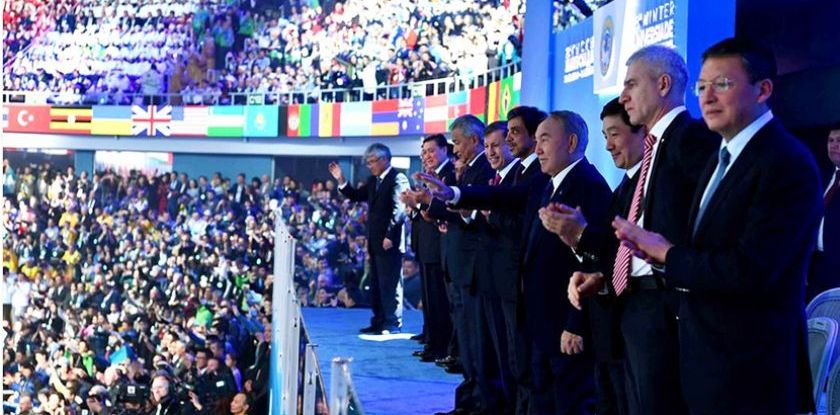Pressurizing opposition activists, arresting state officials… The situation in Kazakhstan is getting bleaker every day. There is a crisis on, and it seems that Akorda is trying to rebalance things but not for the purpose of shifting the power from the president to his successor. Their goal is to preserve the status quo.
What are the most striking features of Kazakhstan’s domestic policy today?
First, it is an anomalous public activity of certain state agencies and senior government officials.
Second, it is a dramatic increase in the number of the state officials, quasi-governmental agencies’ managers, and security ministries’ employees arrested on different charges.
Third, it is a severe pressing of the civic activists amid the administrative and legislative suppression of any activity unauthorized by the state.
Fourth, it is Nazarbayev’s stepping up his role as the head of the state and the leader of the nation.
We believe all this is a result of the internal political crisis.
This crisis is triggered by the economic decline. The fall of the living standards for most Kazakhs is its another unavoidable consequence. The situation is worsened by the fact that the obvious fatigue in society caused by years-long authoritarian regime and the evident inability of the state to change the matters for the better in a prompt manner overlaps the economic problems. Therefore, Nazarbayev finds himself in a position when he may lose his power.
Note that before the Kazakh president had always been lucky in such situations. Take, for instance, the 1998 economic crisis. It had led to such a dramatic escalation of the internal downturn that, first, Prime Minister Akezhan Kazhegeldin and, second, a large group of entrepreneurs and state officials under the leadership of Mukhtar Ablyazov and Galymzhan Zhakiyanov made a stand against the president. Then, however, the oil prices started going up, the economic boosting began, and everyone, first of all, the elite, rushed to make money.
In 2008, a new world economic crisis hit Kazakhstan. However, by that time, the democratic opposition was divided and noticeably weakened. The crisis itself was short and, at first, neutralized by the National Fund resources. Then, the world oil process started growing again.
Now, perhaps for the first time in the recent Kazakh history (the period before 1998 notwithstanding), the domestic policy crisis overlaps the economic crisis. Therefore, Akorda must act the way it is acting today.
Thus, Nazarbayev as the head of the state and leader of the nation is forced to be hyperactive. At any cost, he must solve these unliftable tasks – to mobilize the state apparatus and the quasi-governmental agencies, to make their work performance more efficient, to enhance the country’s manageability, to mobilize the citizens to follow his directions, to attract foreign investors on a massive scale, to delegate a part of responsibility to the government and the parliament, to preserve the domestic stability, etc. Otherwise, he simply will not be able to retain the power.
The state authorities, in their turn, are trying to follow the political will of the president. Certain agencies and highly-ranked officials, capable of speaking in public, are attempting to influence the Kazakhs by their words. The security ministries have started the manhunt on bribetakers, state funds embezzlers, and, by proxy, the “regime enemies”. The first in the firing line are the opponents and competitors among the elite, those to settle old scores with.
By the look of it, increasing repressions against the ruling elite, the state officials, and the quasi-governmental agencies’ managers has been authorized directly by Nazarbayev and is, in fact, a crucial component of his usual divide et impera policy.
Apart from that, it seems that Akorda is trying to rebalance things but not for the purpose of shifting the power from the president to his successor. The goal is to preserve the status quo. Therefore, the government is now taking repressive actions against civic activists in such a demonstrative and tough fashion. They aim to scare the people and force them to remain passive.
The problem, however, is that the economic crisis is going to continue for a long time. At a minimum, until the country’s economy will be cardinally reformed and find new drivers for its qualitative change and quantitative growth. We are talking five or more years, even ten perhaps. This, in its turn, means that the Kazakh economic miracle of 2002-2008 will not repeat itself, at least, in the near future. So, could it be true that Akorda would continue tightening the screws through all this time? One can strip the thread this way, can’t one?




